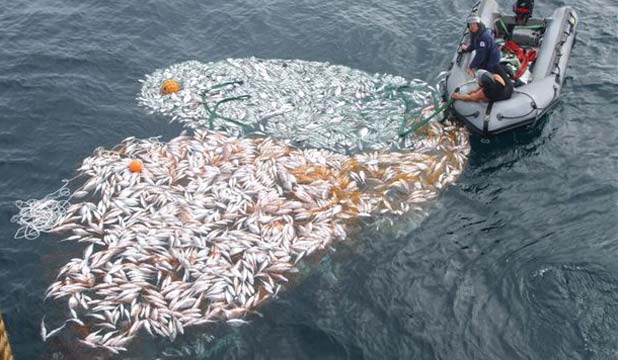A report released on Friday suggests that the Ministry of Primary Industries (MPI) was wrong not to prosecute five inshore fishing vessels that were filmed dumping fish during a trial of video technology. In the debate over whether to prosecute, an internal email suggested that if MPI cracked down on this problem it would put half the fishing operators out of business.
Of course Greenpeace recreational fishing lobby group Legasea claim that MPI is captured, but the issues are far more complex than that. Fish dumping is a problem all around the world, and different ways of managing fish stocks inevitably create different problems.
However, there are some tweaks that could be made to the Quota Management System to reduce fish dumping without putting inshore fishing operators out of business. We have to make sure that fishing quota owners are responsible for the actions of the people doing the fishing.
Why Dump Fish?
In our work on the fishing book Hook Line and Blinkers we looked at a lot of fishing systems around the world. As soon as any country tries to limit the amount of fish caught to preserve fish stocks, it creates an incentive to dump fish. By placing a limit on the quantity of fish, the only way for fishers to earn more money is by improving the quality of fish they catch. That means chucking back the cheap stuff so you can catch more of the good stuff. It can also be difficult to catch exactly the fish you are allowed to catch – if you catch fish you shouldn’t catch the temptation is often to throw them back and keep fishing for the ones you are allowed to catch.
New Zealand’s Quota Management System tries to take care of this problem by allowing the fishers to land a few extra fish, and sell them. The more fish you land over your limit, the higher the penalty you pay for that fish. The aim is to allow fishers a little room to move, but of course it doesn’t remove the incentive to dump fish altogether.
Cameras on board
MPI have touted technology as the answer. They will put GPS and cameras on all fishing vessels, to allow random monitoring of their actions and ensure there is no dumping. Greenpeace has pointed out that the contract to monitor the cameras has been won by a company that is owned by the fishing industry, so it is unclear how seriously MPI are taking the issue.
Regardless of this, as MPI points out cameras alone will not fix this problem without putting fishers out of business. The cause of the problem runs much deeper, and we can’t necessarily blame the people catching the fish.
The real problem – the Quota Management System
The MPI internal email noted that about half inshore operators going out of business if the rules were enforced may have been an exaggeration, but the basic point is correct. This issue reveals a weakness in the way the Quota Management System works.
The idea of the Quota Management System was that by giving fishers a right to catch a proportion of the fish stock forever, they would have an incentive to look after that fish stock. This is the basic idea behind most property rights, and it generally works, but there are two major flaws in the current set up for fishing.
Firstly, the people who own the quota don’t always do the fishing. Often they do, but sometimes they rent out their quota to other people who can do the fishing more cheaply. Offshore this tends to be foreign charter vessels (who now operate under our labour laws at least), and inshore it tends to be smaller local operators. In both cases the only people making real money are the quota owners; they have the power so they squeeze as much profit from renting out their quota as they can. The fishers renting the quota have to work very hard to make their money. That can often mean cutting corners – for example by dumping fish.
Secondly, there is still competition for inshore fish stocks with recreational fishers. This means that the commercial operators don’t really have any incentive to look after the fish stocks – after all if there are more fish in the water they might just get snapped up by the recreational folks.
These two issues are the real drivers behind the fish-dumping problem. Cameras might pick up the worst offenders but, as MPI says, if the rules are strictly enforced many of the fishers renting quota will indeed go out of business. Is that what we want?
Reform of the Quota Management System is needed
If we are serious about reducing dumping, change is needed. The first issue can be resolved by ensuring that all quota owners have to either own the boat doing the fishing, or be responsible for any infringements made in the process of catching their quota. The second issue requires bringing recreational fishers into the Quota Management System; if they want to catch more fish for example they would need to buy it off commercial operators. This would be possible with a moderate license fee for recreational fishers.
The changes suggested above should reduce fish dumping, without putting local inshore fishers out of business. The problem is that the first idea would hit the profits of the quota owners, and the second would be politically unpopular. The Quota Management System is currently being reviewed, but it is being led by MPI so we probably can’t expect the sort of fundamental changes recommended above.
Changes are needed, but don’t hold your breath.

